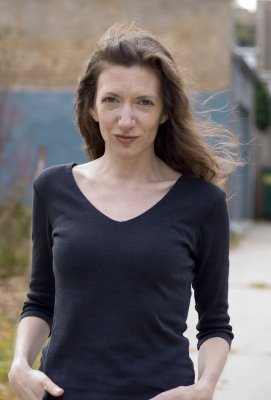
Iva Skoch was 29 when she was diagnosed with stage 3 colon cancer.
A recent NPR podcast, “Young People Living, And Laughing, With Cancer,” tells the story of two young women diagnosed with cancer in their twenties, two unique experiences that highlight a few common themes for young people with cancer. These two women, Iva Skoch and Kairol Rosenthal, were both in their 20s when diagnosed, the population that statistically is the least likely to be underinsured or uninsured. The podcast offers enlightening interviews with these two young women, covering everything from insurance hassles to sexual interest during and after cancer. Each woman has her own story; while Iva returned to her native Czech Republic for cancer care (even though she has insurance coverage in the US), Kairol fought relentlessly with insurance
companies over misplaced paperwork that resulted in a loss of insurance right about the time of diagnosis. Iva’s story includes the emotionally draining decision to bank embryos prior to treatment to preserve her fertility, a process where she felt under-informed and unsupported by the doctors who seemed focused entirely on her cancer treatment. As described by Iva, there are many other issues that impact your quality of life if you do happen to survive cancer, including fertility, issues that are often overlooked or brushed over by the treating physician. And young cancer patients are more open to talk about these issues (and other taboo subjects) than their older counterparts. “Young people don’t feel like they need to whisper after they lose a breast, a testicle, or sex drive,” Iva claims.

Kairol Rosenthal was diagnosed with thyroid cancer at the age of 27
The younger population of cancer patients may also be craving something other than the standard hope-laden support messages that cancer patients commonly receive. Iva describes the growing interest in “cancertainment,” or using humor to fight cancer, which she wrote about in a recent Newsweek article (http://www.newsweek.com/id/209319). In the process of writing her new book, “Everything Changes: The Insider’s Guide to Cancer in Your 20s and 30s,” Kairol discovered a similar phenomena: there’s a lot of hype about hope in the cancer world, and sometimes this may be to the detriment of letting people express feelings of vulnerability and weakness. As these women exemplify, the population of young cancer patients differs from their older counterparts – they are looking for ways to express their nitty-gritty experiences with cancer, and humor is proving to be a compatible outlet.
Iva and Kairol honestly and unabashedly describe their experience as 20-something cancer patients and introduce the new concept of combining two unlikely counterparts, cancer and humor, as a means of expression and an outlet for the less-than-glamorous aspects of cancer treatment.
The NPR podcast is available online at: http://www.npr.org/templates/rundowns/rundown.php?prgId=13&prgDate=9-8-2009


